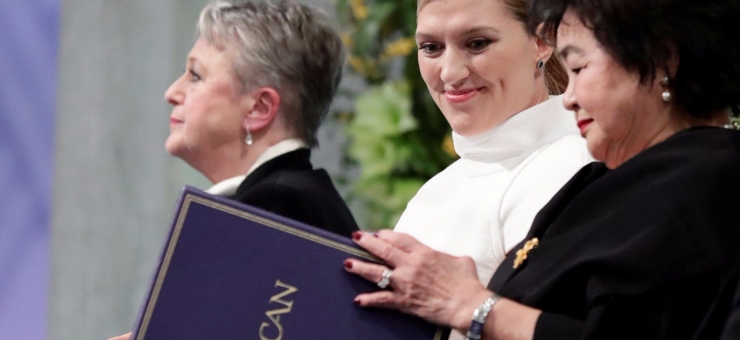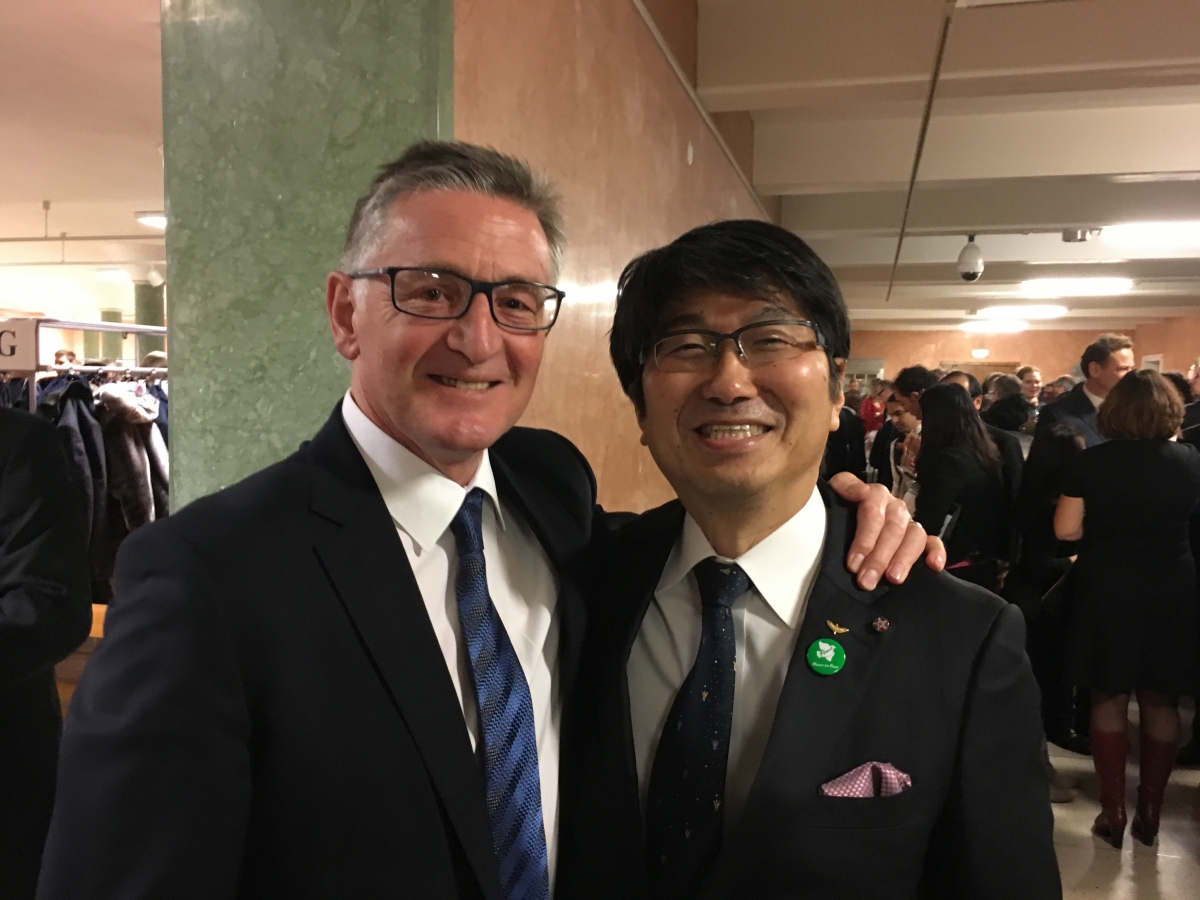UNI GS at Nobel Peace Prize: ‘Time for governments to heed the warnings’

As ICAN accepts Nobel Peace Prize, UNI GS Philip Jennings calls on governments to take action to end the deadly threat of nuclear weapons
Geneva-based, the International Campaign for the Abolition of Nuclear Weapons (ICAN) received the Nobel Peace Prize, for its efforts to bring about the United Nations Treaty on the Prohibition of Nuclear Weapons. The Treaty has been signed by 122 nations but only ratified by eight while 50 are required to make the Treaty come into force.
UNI Global Union General Secretary, Philip Jennings, who was at the ceremony in Oslo said, “ICAN should be congratulated for the great work its achieved. It’s a happy coincidence that today is also Human Rights Day because the nuclear threat goes to the heart of what it is to be human and the values of peace and equality we as the union and peace movement hold sacred.
“North Korea’s intercontinental ballistic missile tests combined with Mr Trump’s dangerous and irresponsible response puts us all in danger. We call on governments who have signed the Treaty to ratify it and those who have not to sign and ratify it: there are nine governments in the world that have nuclear weapons and as ICAN said the only way the world will be safe will be when these bombs are abolished. There have been too many incidents of misunderstandings, miscommunications and accidents that have brought us to the edge. We know that the Doomsday Clock is set at two and half minutes to midnight. Wake up Beijing, Moscow, London and Washington – or it will be too late.”
The world is "one tiny tantrum away" from a nuclear crisis, said ICAN executive director Beatrice Fihn as she accepted the Nobel Peace Prize.
"We have a choice: the end of nuclear weapons or the end of us," she concluded.
The International Campaign to Abolish Nuclear Weapons, which won this year's Nobel Peace Prize, on Sunday said the world was "one tiny tantrum away" from a nuclear crisis.
The group also said a country's "moment of panic" could lead to the "destruction of cities and the deaths of millions of civilians."
Tensions between the US and North Korea have spiked, bringing forth the possibility of nuclear retaliation into the global spotlight.
Setsuko Thurlow, who survived the Hiroshima bombing in 1945, joined with ICAN's executive director, Beatrice Fihn on stage to accept the Nobel Prize.
As an ICAN activist, Thurlow recalled how buried under the rubble of Hiroshima, she sought the light filtering through the ruins and did not give up hope
"Our light,” she said, “is now the treaty banning nuclear weapons. I repeat the words I heard within in me in the ruins of Hiroshima: ‘Do not lose heart. Keep pushing, see the light? Crawl towards it’".
UNI Global Union is a supporter of ICAN and has a strong connection with the people of Nagasaki where it held its World Congress in 2010 as a way of cementing relations between the labour movement and the people of Nagasaki and Hiroshima. These are the cities where the destruction of nuclear weapons has been felt at first hand, with the immediate loss of around 225,000 people and millions suffering the deadly effects of radiation.
As pointed out by the UK Labour shadow Minister of Peace and Disarmament, Fabian Hamilton, ‘Modern nuclear weaponry is able to wipe out cities at one fell swoop, causing catastrophic harm to millions of people and severely disrupting the earth’s atmospheric climate.’
The UNI GS, who was appointed a peace ambassador in Nagasaki, met up with the mayor of Nagasaki, Tomihisa Taue at the award ceremony in Oslo.

UNI and the broader labour movement is committed to the peace movement and will highlight the issue at its World Congress in Liverpool in June 2018.

